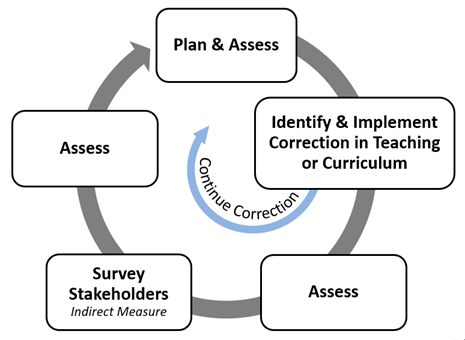Management
The Management Program, which offers a Bachelor of Business Administration degree, is built upon a basic foundation of general education and the business core. The undergraduate program clearly offers a broad-based professional education in management.
We are in an era in which professional interests and larger social considerations tend to be in conflict at every turn, and professional education programs all over the country are competing with one another in their attempts to develop the ideal curriculum.
A sound undergraduate business education must emphasize the broader facets of the general education requirements as well as the business core subjects.
In our times of growing social awareness, meeting this challenge would appear to be essential. It is important, therefore, to emphasize that our Management Curriculum is designed to prepare our graduates to meet both professional and societal expectations.
Curriculum & Requirements
Degree Schemes, Requirements & Concentrations
View the scheme below based on the semester entering the Management degree program. Refer also to the School's Academic Policies.
Management BBA
Management BBA with Concentration in Entrepreneurship
Learn how to start a business, bring entrepreneurial skills to established businesses and manage small businesses. Identify business opportunities, develop business plans and new ventures, access resources and shadow entrepreneurs on projects. Requires MGMT 350, MGMT 353, MGMT 355 and MGMT 356.
Concentrations are an area of focus in the major discipline. Coursework is fulfilled through required major electives and included in the original 120 credit hour degree requirements. It does not appear on the official transcript.
Advising Worksheets
View the advising worksheet below based on the semester entering the Management degree program. Refer also to the School's Academic Policies.
Management BBA (and Concentration in Entrepreneurship)
Lists of Approved Electives
Purpose & Vision
Mission
To achieve excellence in providing students with a top-quality management education; and provide students with the proper skills and learning experiences for success in the workplace and their businesses. Further, the department seeks to foster a learning environment for students by integrating the ever-growing body of management knowledge through enhanced faculty research and professional experience.
Strategic Goals
- Demonstrate an understanding of ethical decision making and behavior in business.
- Learn techniques for strategy formulation, evaluation, and organization based on an understanding of business dynamics and external market conditions.
- Demonstrate an understanding of various motivation, leadership, innovation, communication and group dynamic theories in business.
- Learn the importance of entrepreneurship and learn techniques for starting, growing, and sustaining a new venture.
- Learn the components of human resource management, including diversity, equity, and inclusion, and understand their strategic importance.
The HU School of Business follows a comprehensive and multi-faceted assurance of learning process in accordance with AACSB standards. All degree programs are assessed by direct measures on the “Business School Core Competencies” and respective “program learning goals” created by Department faculty. Assessment questions are created by faculty and distributed by the Office of the Associate Dean to seniors at the end of their matriculation. The Office of the Associate Dean then reports the data to the Department faculty, who will review and identify any improvement strategies based on the desired target. After implementation, and alongside any surveys determined necessary to any stakeholders, the Office of the Associate Dean will again send the original assessment questions to seniors at the end of their matriculation. Occurring on a staggered, 5-year cycle, this plan “closes the loop” in the year-to-year continuous improvement but also closes the larger “loop” by assessing across the 4-year matriculation cycle.

